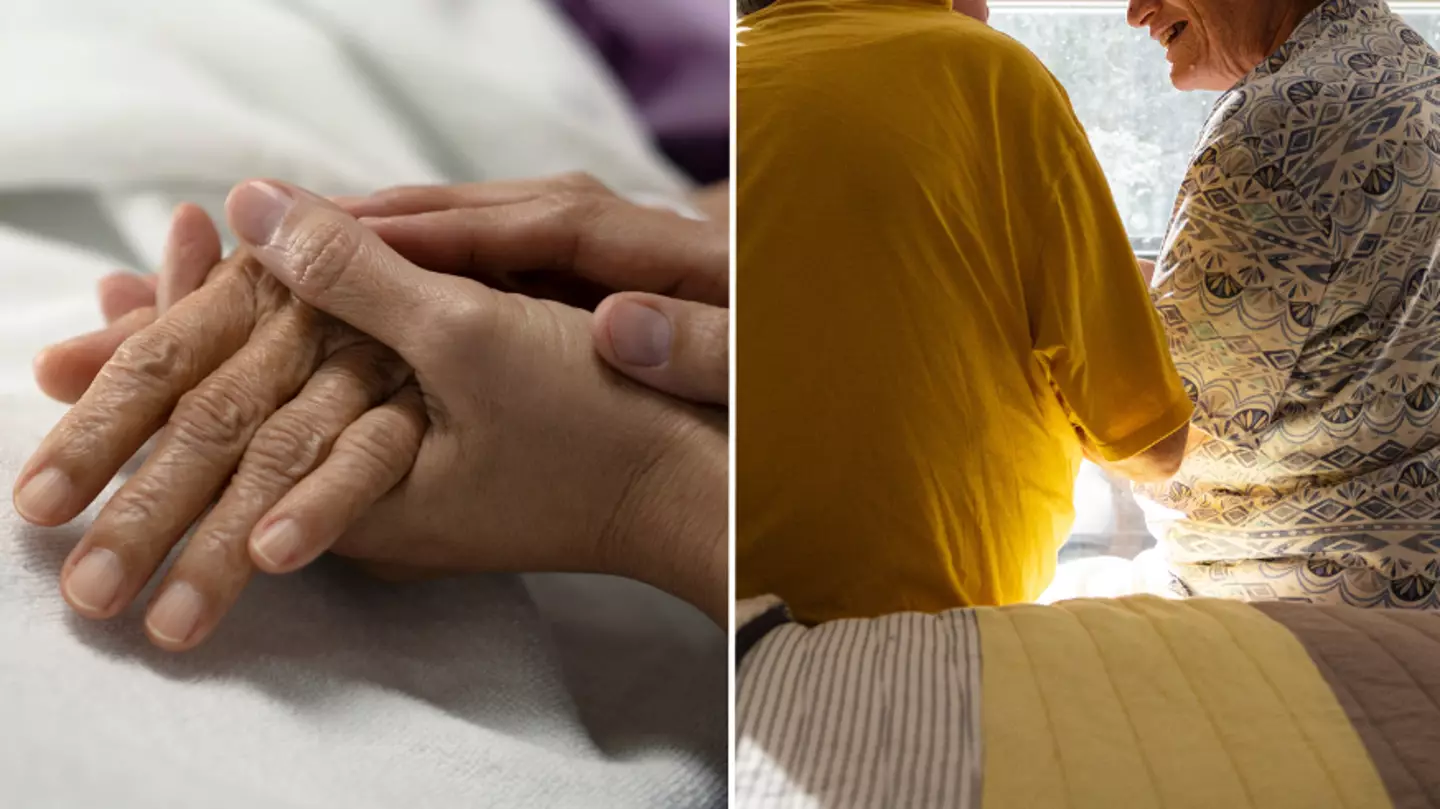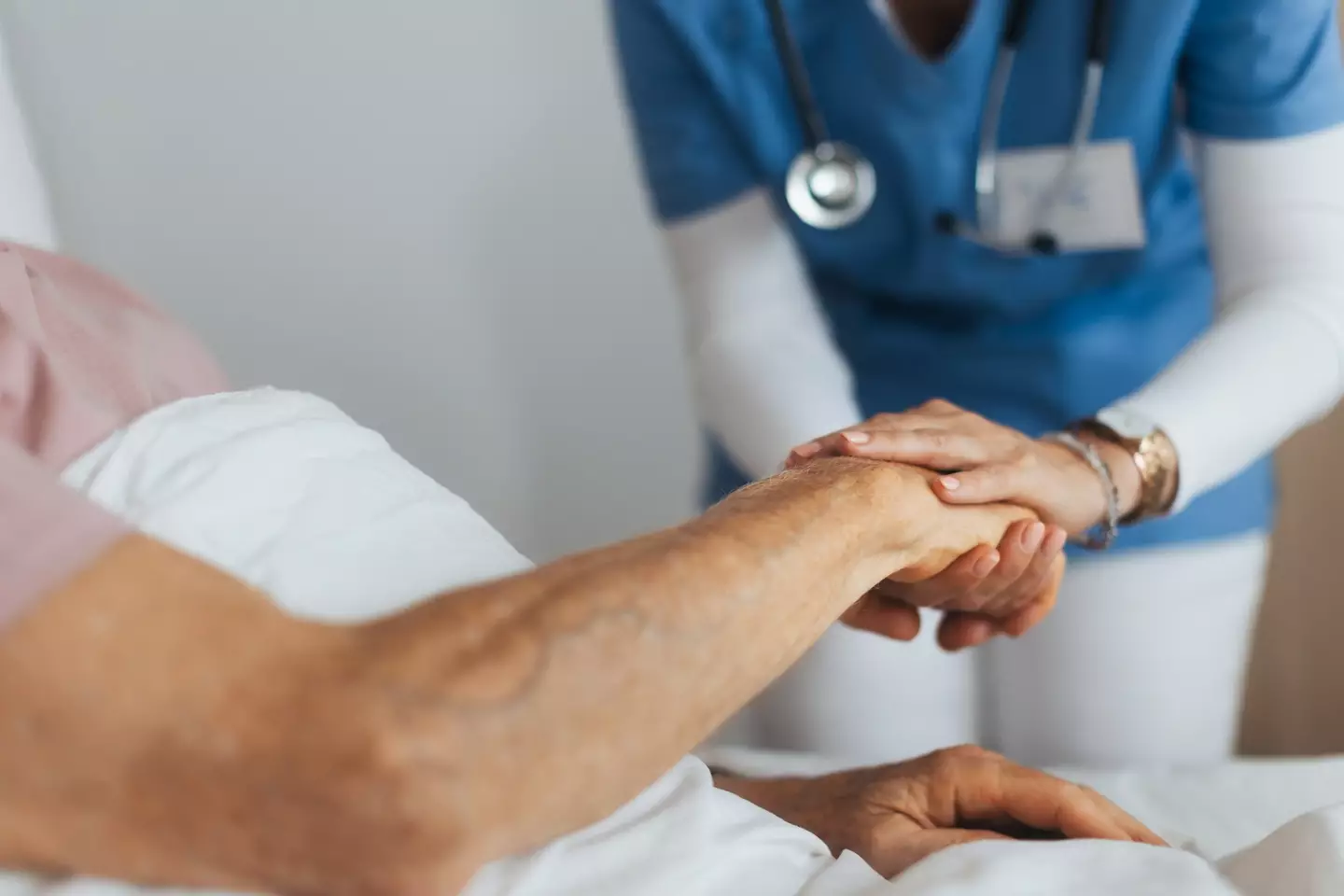
A heartbreaking statistic has revealed why family members shouldn't get their hopes up if a dying family member suddenly seems to be making a recovery.
It's never easy seeing a loved one slowly pass away, often with their condition deteriorating in front of your eyes.
It's a painful reality for many, and a complicated process to navigate.
Some days, your friend or family member will appear 'better' than others, which can also be confusing when you have been told by doctors that there is nothing more that can be done.
Advert
And it can be even more baffling for some, as it has been reported that some patients experience a 'surge' in energy when death is impending.

A statistic has been revealed, suggesting that four in ten people will have a 'final surge' of energy before they die, which can be refreshing for loved ones to witness.
But just as they get their hopes up that a recovery could be on the cards, their loved one sadly passes away. So, why does the 'surge' happen, and what does it look like?
What can a 'surge' look like?
A 'surge' in energy of a dying loved one can present itself in many forms, depending on what they are suffering from.
But according to GoodRx Health, some common ways include:
- Suddenly sitting up in bed
- Speaking more clearly, and for longer periods of time
- Being clear in their thinking when they weren’t before
- Wanting to have specific conversations
- Asking to eat or drink
These are likely things that the dying person struggled to do previously, and feel miraculous to those around them.
Other people experience different end-of-life experiences, such as having conversation with people who aren't actually there, having images of light, having visions of other people who have died, and so on.

Why does the 'surge' happen?
From a medical standpoint, it's not entirely clear why it happens, but many people believe the answers are psychological or spiritual.
In the studies that have been done, explanations include that the brain seems to work harder just before death.
From scans, brain wave patterns in people who are dying look similar to the patterns we can see when a person is processing something or trying to make sense of things.
It is also known as an 'end-of-life-rally', and is perceived by experts as a highly complexed notion.
How to deal with a loved one experiencing a 'surge'
Whilst it can be a confusing time for those around the person who is dying, it can also bring some comfort.
You might find it may actually provide a final opportunity for meaningful conversations, or a time to share important information.
It's important just to be open to whatever the person is experiencing, and take in whatever they might have to say.
Just listening will be appreciated, as well as normalising everything they could be experiencing.
